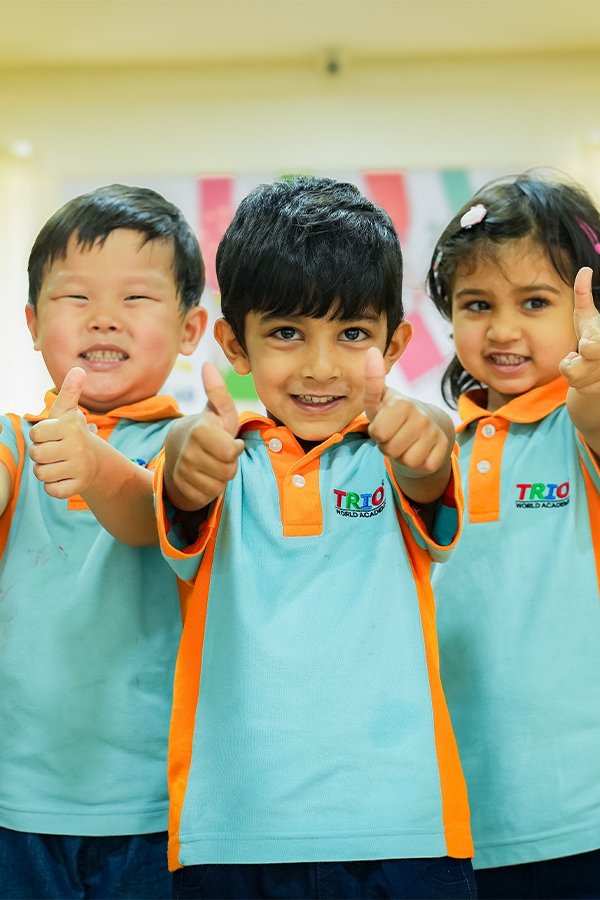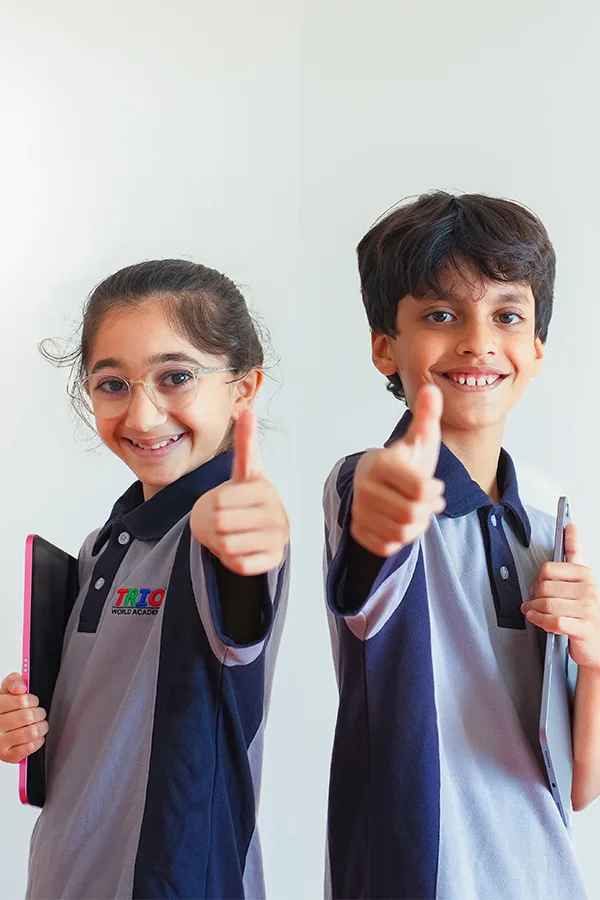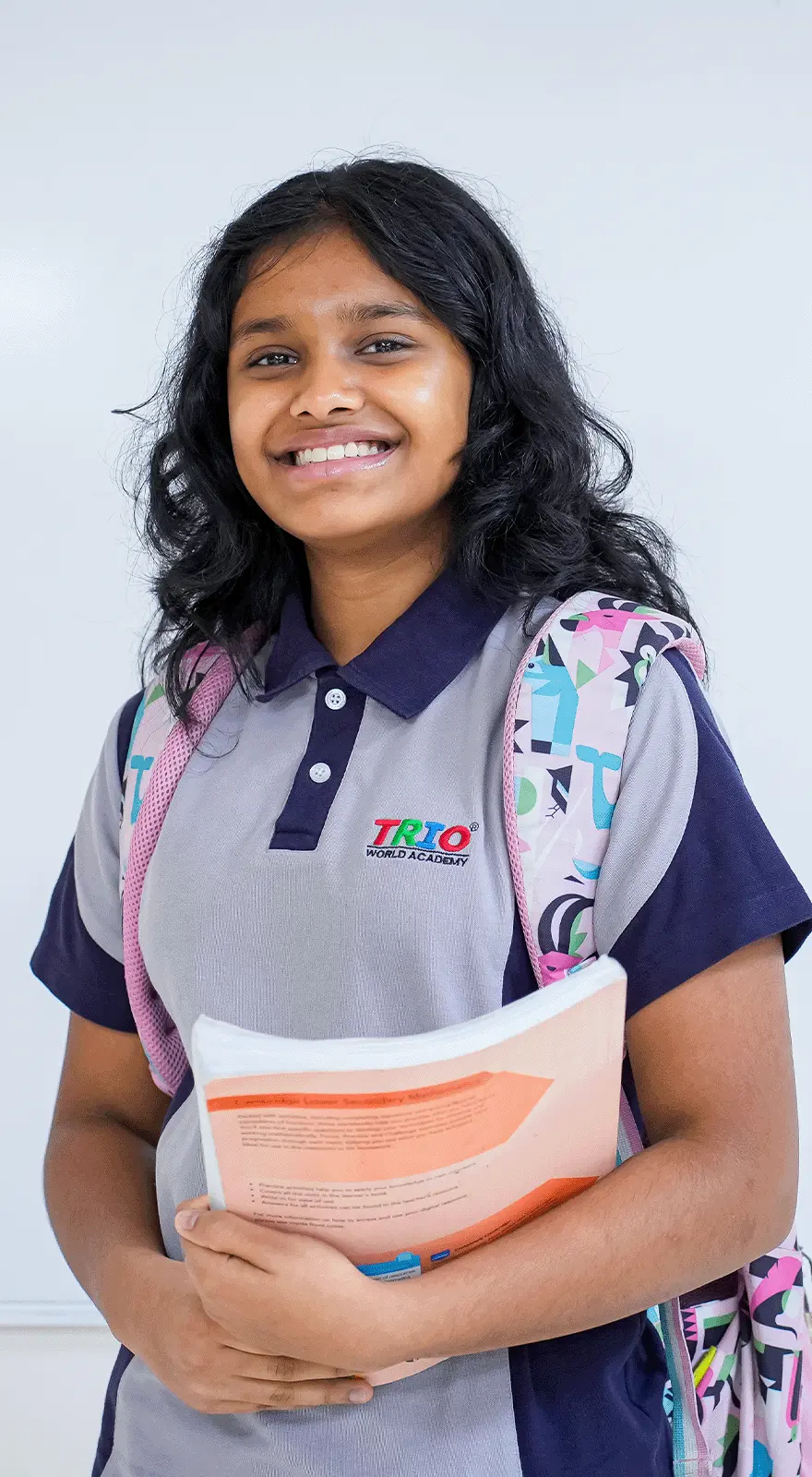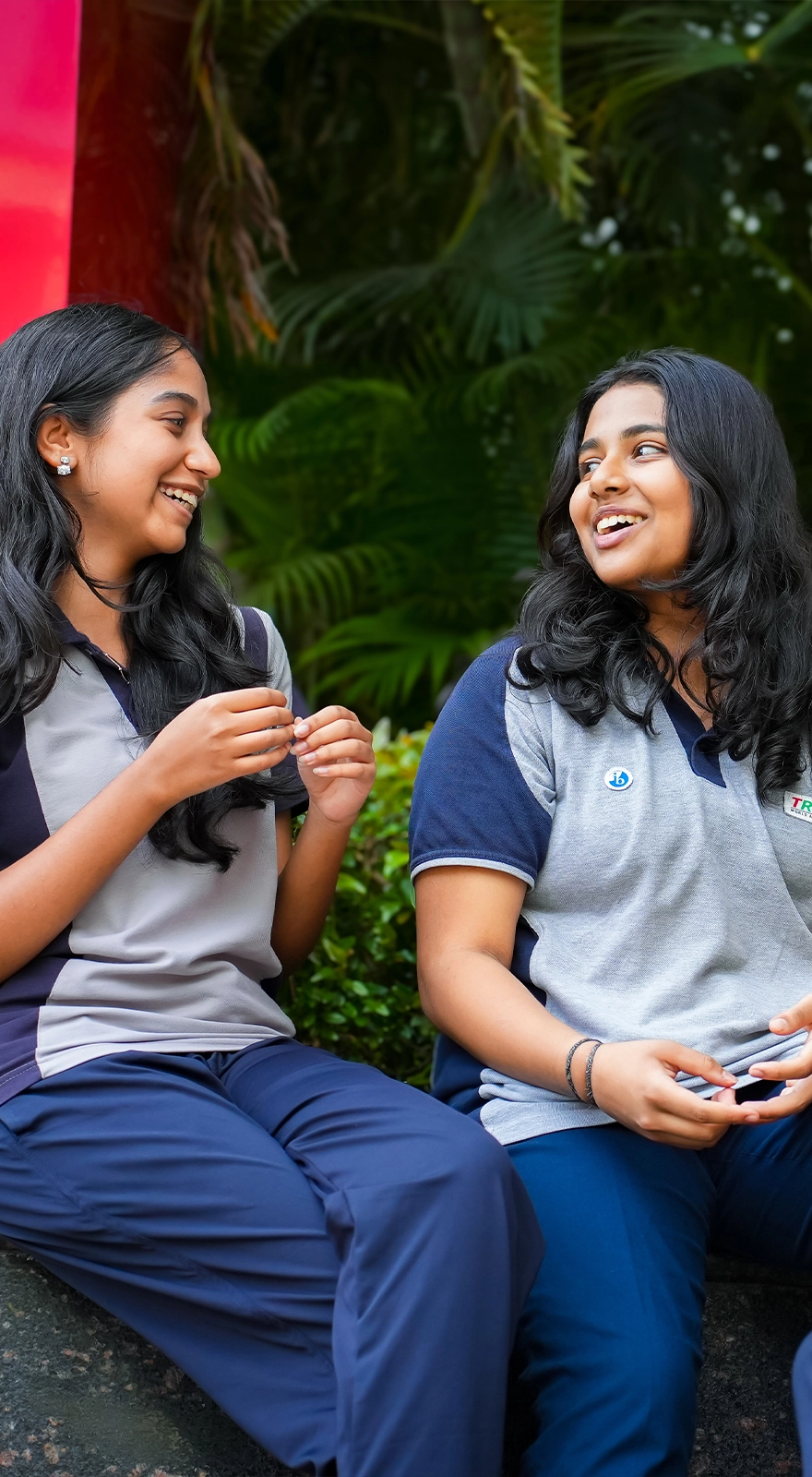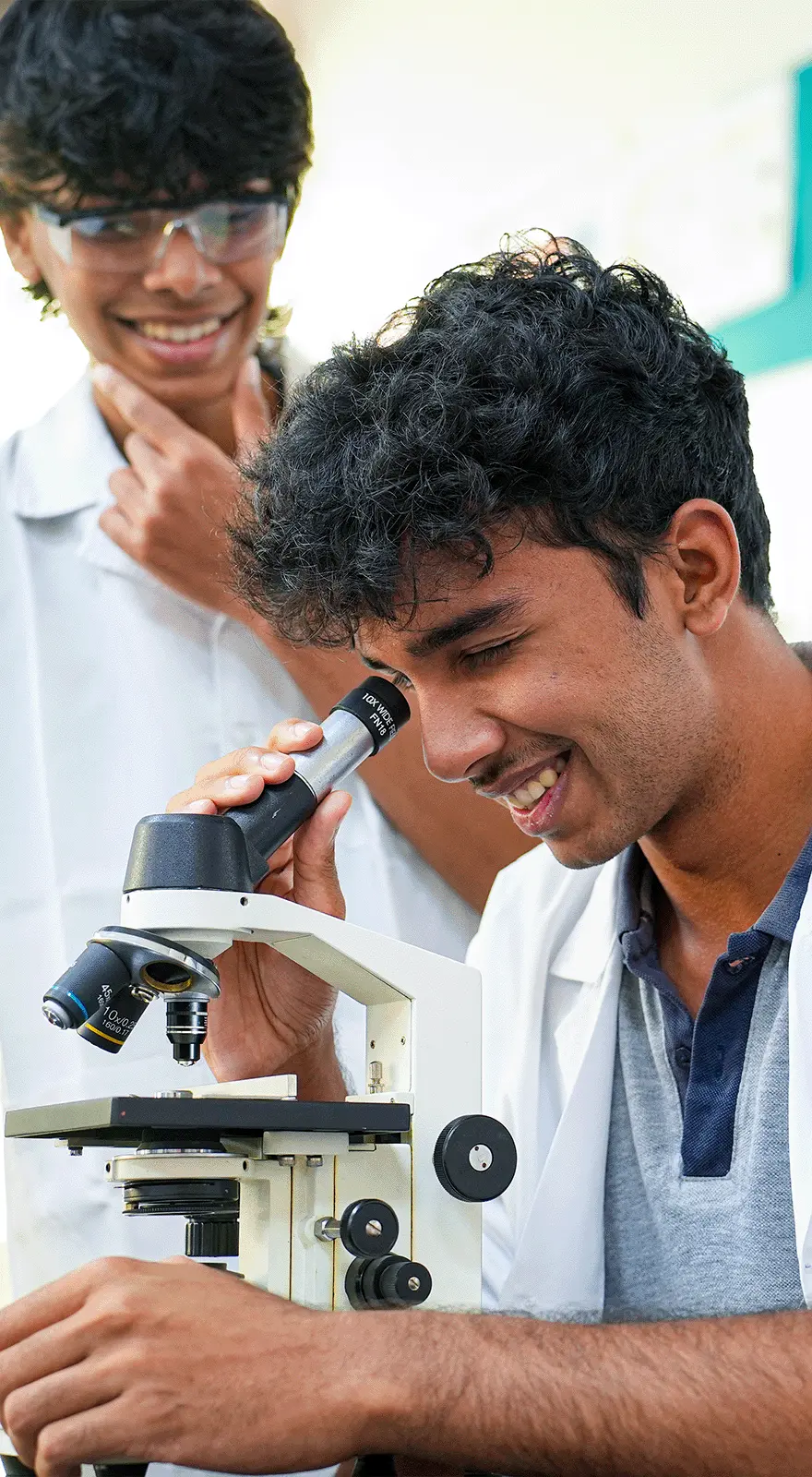A School Parents Believe In
Why Families Trust TRIO
At Trio World Academy, positive student–teacher relationships are at the heart of everything we do. Our small class environments and experienced educators ensure that every child is known, understood, and supported both academically and personally. This strong bond between students and teachers builds confidence, encourages open communication, and helps students thrive in a safe and nurturing learning environment.
Student safety and emotional wellbeing are non-negotiable at TRIO. We have a robust safety and emotional support system backed by dedicated pastoral care, counsellors, and clear wellbeing protocols. With a strict zero-tolerance policy for bullying, we foster a culture of respect, empathy, and inclusion where every student feels secure, valued, and heard.
A key reason families continue to trust TRIO is our strong teacher retention. The continuity of our faculty ensures stability, consistent teaching practices, and deep understanding of each child’s learning journey. This long-term commitment from our educators creates a caring, reliable, and high-quality educational experience that parents trust and students love.
Schedule a School Visit for Admission
Meet the school’s admission counselor.


